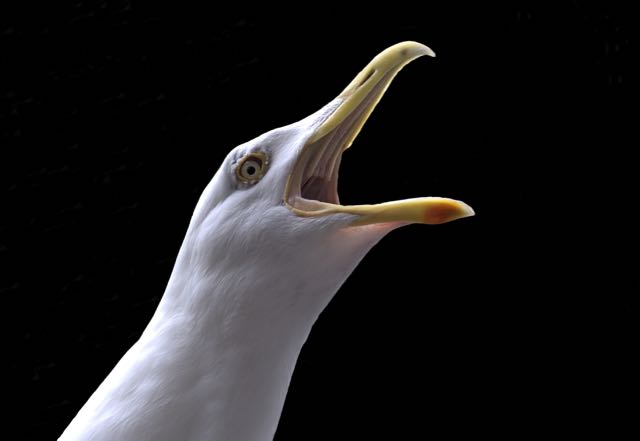A magazine where the digital world meets the real world.
On the web
- Home
- Browse by date
- Browse by topic
- Enter the maze
- Follow our blog
- Follow us on Twitter
- Resources for teachers
- Subscribe
In print
What is cs4fn?
- About us
- Contact us
- Partners
- Privacy and cookies
- Copyright and contributions
- Links to other fun sites
- Complete our questionnaire, give us feedback
Search:
What are birds actually saying?
by Dan Stowell and Paul Curzon, Queen Mary University of London

Birds make so much noise, and it's very complex. Is it just babble, or are they saying complicated things to each other? If so, could we work out what they are saying, what it means? Could we learn their language and speak to the birds?
We know that bird communication is not as complicated as the words and sentences in human speech. So far, no one has been able to find grammatical patterns like those we find in human language. There apparently aren't rules for birds like the ones we have about verbs and nouns. Birds don't have to learn grammar! Exactly how complex bird languages are is still hotly debated, though.
Birds are definitely passing on specific information when they sing. Sometimes they're passing on information about predators, or food, or sometimes just advertising their own fitness - showing off to get a mate (a bit like karaoke nights). Scientists have proved that such specific kinds of information are in the sounds birds make by observing bird behaviour. By playing recordings of birds and seeing how other birds react, they can see what information was communicated by a particular sound. If you play a 'predator near' call, for example, then other birds flee, but they stay put if you play other calls. They get the message.
It turns out some birds have even learnt the languages of other animals and use it both to help those other animals and to support a life of crime. Many animals listen for the alarm calls of the animals around them, and so flee when others see a problem. Birds called Drongos, for example, act as lookouts for Meerkats, giving warning calls when they see Meerkat predators, allowing them to return to the safety of their burrows. However, the Drongos also sound false alarms every so often. They do it when they see a Meerkat with some juicy morcel. As the Meerkats run, the Drongo swoops in to steal the abandoned food.
Unfortunately for the Drongo, Meerkats are quite clever and get wise to the con. Eventually, they start to ignore the Drongo and only listen for their own Meerkat sentry's call. The Drongo has another trick though. They are really good at mimicking sounds they hear, just like parrots. They have learnt to speak Meerkat just like the scientists do in experiments. So when the Meerkats stop reacting, the Drongos just switch tactics and start making perfect Meerkat language alarm calls instead. Once again the food is theirs.
While most of us can't reproduce bird sounds ourselves, and so talk directly to animals, we can certainly write programs to do it. In Star Wars, C3PO is a master of languages, speaking millions. Real robots of the near future will be able to mimic the sounds of whatever animals they wish and communicate with them in at least the simple ways that animals of different species listen and talk to each other. Perhaps something like this might be used to help protect endangered species from their predators, for example, watching for hawks and issuing timely warnings. We just have to hope they don't turn to the Dark Side, like the Drongos, and use these skills to support a life of crime.


